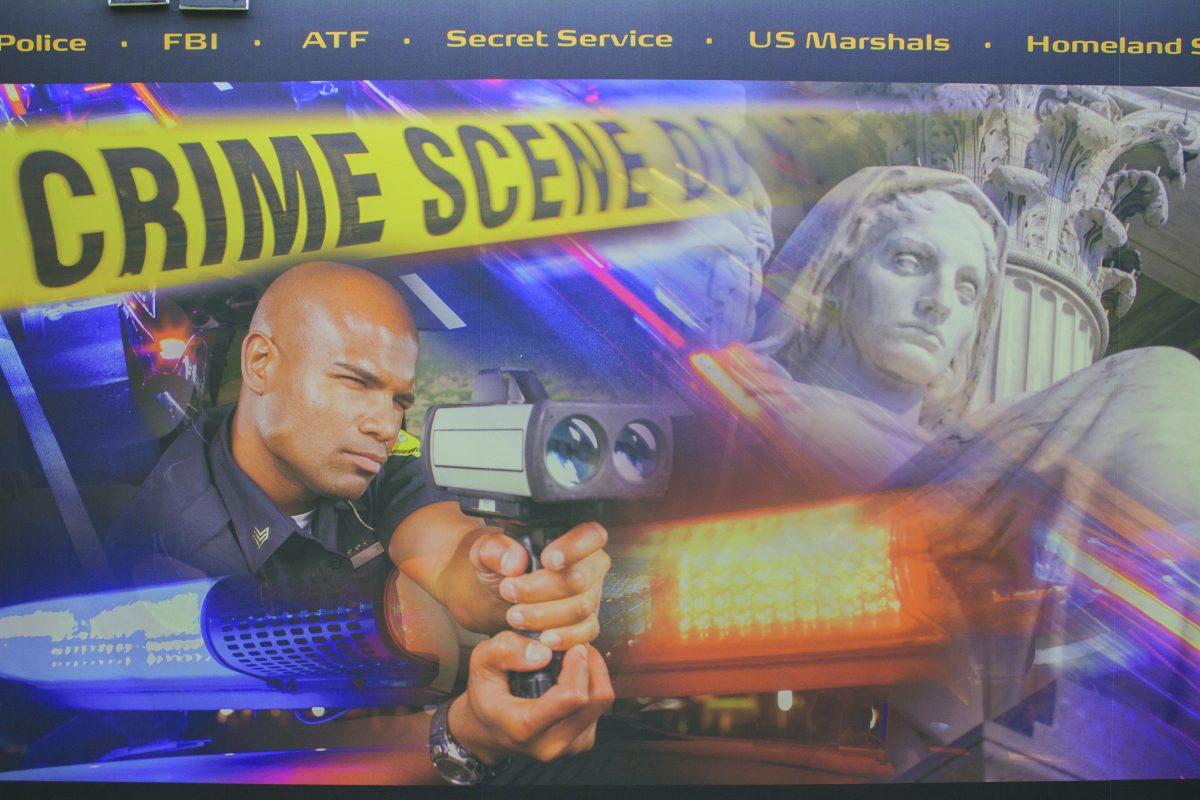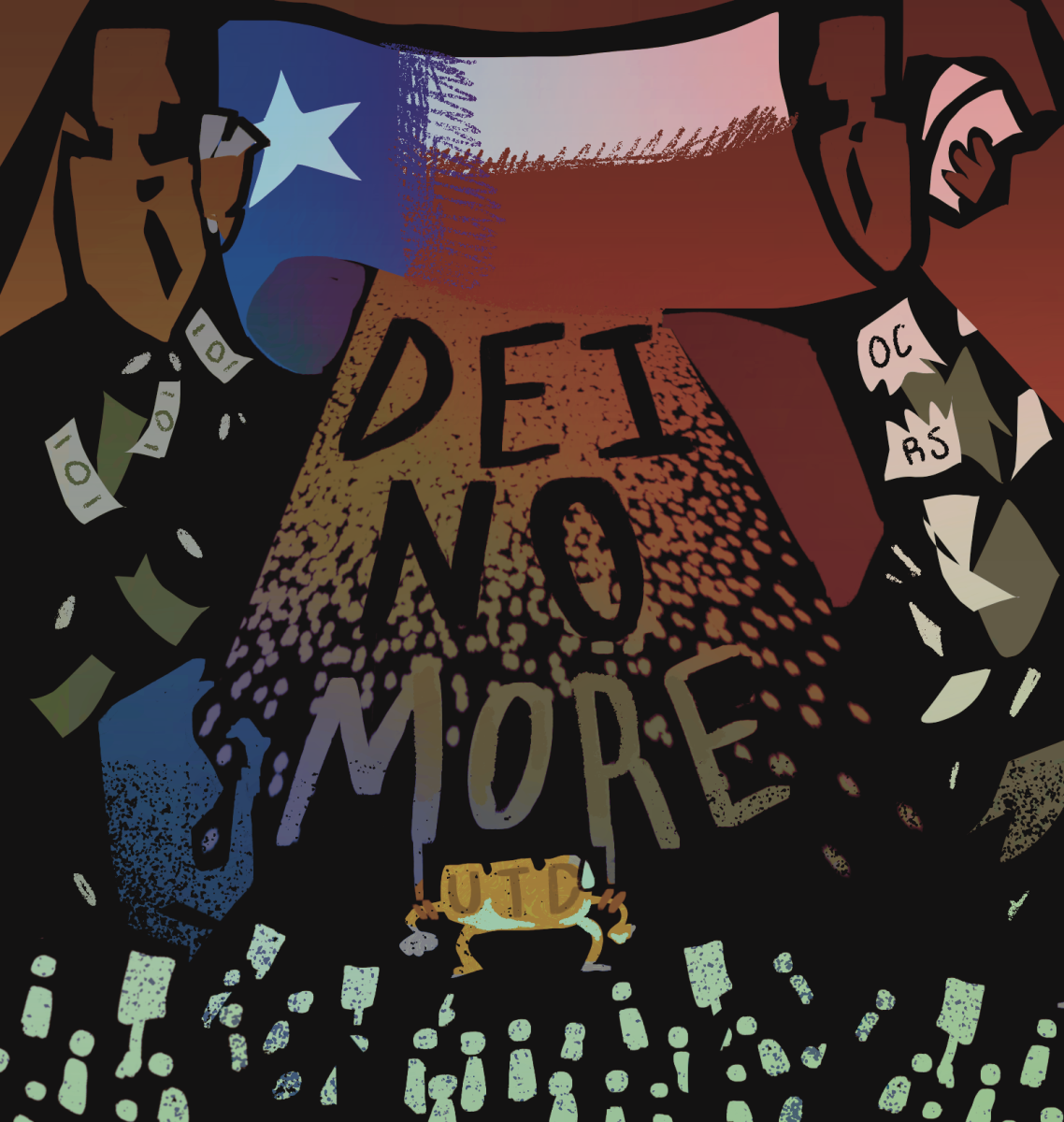Criminology professors move forward with lawsuit citing privacy law violations
Following a two-day faculty tribunal hearing which found no evidence of fraud, university president Richard Benson decided not to terminate two professors accused of academic misconduct. The professors are now seeking legal action against the university citing a violation of state and federal privacy laws.
Criminology professors John Worrall, Robert Taylor and Galia Cohen originally received termination letters from the university in 2018 after an unapproved credit substitution practice was uncovered and reported by a professor. Termination proceedings against Cohen were later dropped. As part of the proceedings, Worrall and Taylor took part in a faculty tribunal on June 13 and 14, 2019 to determine their fate as professors at UTD. The Mercury later obtained transcripts of the hearings.
Students in the Master of Science in Justice Administration and Leadership program were only permitted to use the substitution method after taking equivalent courses at the Institute for Law Enforcement Administration or the Caruth Police Institute. The faculty members would then give the students equivalent grades in UTD courses that the students were not required to attend.
During the hearings, Frank Hill, a lawyer representing the three faculty members in their lawsuit, brought up a 2015 Memorandum of Understanding Worrall drafted between UTD and ILEA which was rejected in 2017 by then-dean of graduate studies Austin Cunningham. Associate provost for policy and program coordination Serenity King testified that the MOU was rejected because Cunningham believed that the Commission on Colleges of the Southern Association of Colleges and Schools not would approve it.
Provost Inga Musselman stated at the tribunal that students lost promotions and job offers in the wake of the scandal. In a 2018 memo to various faculty members after news of the criminology scandal broke, Musselman proposed a credit transfer process allowing students to receive a credit, but no grade on their transcript which would correspond to approved classes taken at CPI and ILEA. King testified at the tribunal that Worrall’s previously rejected MOU was used as the basis for this proposal. However, in Musselman’s proposal, she states that the policy will need to be approved in order to rectify errors on student transcripts that resulted from the grade substitution practice while still keeping the university’s promise to previous and current JAL students.
“The primary issue was that course credit was given for classes taken elsewhere without following appropriate protocol,” a university spokesperson said. “After this was discovered, immediate steps were taken to address the issue.”
Hill insists, as the tribunal found, that his clients are innocent of any wrongdoing but are moving forward with a lawsuit because he alleges that the university released his clients’ termination letters to the press in violation of the Texas Education Code, which protects the identity of individuals participating in an investigation conducted by an institution of higher education. He added that the lawsuit is also due, in part, to the damage the scandal has caused to the professors’ careers.
“The publication in the **Dallas Morning News*** claiming that my people have committed academic fraud will be a virtual death knell for their educational future and their professional future,” Hill said. “No one, you know, no university is going to hire them if they’re under the cloud of that. Now, we have vindicated them in this hearing process, but the law permits them to recover damages for whatever residual damage may be done to their careers, for mental anguish, for attorney’s fees and any damages that they’ve suffered.”
The professor who alerted university officials to the criminology scandal had originally accused the professors of financial misconduct. Chief inquiry officer for the UT System Trey Atchley was brought on by Musselman to investigate allegations of criminal misconduct. His investigation found no evidence of any financial or criminal misconduct among the professors. In fact, Worrall’s 2015 MOU proposed a tuition cut for students who were transferring credits from ILEA and CPI. Hill said that in addition to being innocent of financial fraud, his clients aren’t guilty of academic fraud either, as they were carrying out orders from their superiors. The tribunal reached similar conclusions for both Worrall and Taylor.
“The tribunal found that the whole practice and principles and procedures had been approved in writing by the Dean and his supervisor,” Hill said. “They exonerated (Worrall and Taylor) of any academic fraud or any other wrongdoing and pointed out that there was not even a policy in place at the time. There was no written policy telling anybody how to handle executive programs and transfers in.”
During the trial, Hill revealed that the professor lied on their resume about having experience as a police officer in Arizona prior to working at UTD. Hill said he sent a letter to the department asking about the professor and the department replied saying they had never heard of them. The professor is now on leave, but a university spokesperson said it’s unrelated to the news that was revealed at the tribunal.
“(The professor)’s leave is not related to the JAL program or the tribunal,” the spokesperson said. “Dr. Taylor is teaching one class that was originally assigned to (the professor).”
In the wake of the JAL scandal, Cohen and Worrall lost employment offers from other universities. Hill said the stress of the termination process and tribunal caused the professors to lose sleep and worsened Cohen’s health problems, adding that she had to have a medical professional on standby during meetings with university officials as she was dangerously ill. The university maintains that all procedures set forth in the UT System Board of Regents Rules and Regulations were followed and at least 10 students were affected. In the tribunal transcript, King admits that because the substitution practice had been going on since 2012, there’s no way to know exactly how many students were affected.
The future of the JAL program has not been determined and the program isn’t currently accepting applications. The webpage for the program has been taken down.
Watch our video here:



















